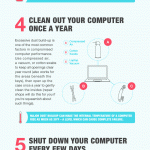This is the second column of a three-part series. Read part 1 here. Are you having difficulty deciding how much lawyers need to know about their technology? You aren’t alone. Joanne Humber, a U.K.-based technology skills consultant, interviewed the person who runs a law firm’s document production
Read more →Late last year, I took the advice of a friend and upgraded to Microsoft Office 365. I regret that decision. I lean mostly on Word, and until I upgraded to 365 I had no idea how much I depended on Word simply being a canvas that I
Read more →Companies audit their third party service providers for many competencies, like security. Why not the competence to do their jobs efficiently? That’s what D. Casey Flaherty did during his tenure as inside counsel for Kia Motors America. He wrote about his experience for the Jan. 24, 2013,
Read more →If you’re of a certain age, the first computers you used did not have mice. They certainly had no graphical user interface, or GUI, a term now as archaic as WYSIWYG — what you see is what you get. Then along came Steve Jobs and his merry
Read more →Have you ever spent hours fine-tuning a Microsoft Word document to ensure a consistent “look and feel” throughout? If so, I suspect you don’t want to do that again. You especially don’t want to repeat the experience when someone asks you to change the fonts and spacing
Read more →Legal technology entrepreneur Gary Kinder earned a law degree, but he didn’t go straight into the law. Instead, he taught writing at his alma mater, became a published author himself, and began traveling the country teaching lawyers how to write. It was during this decades-long teaching stint
Read more →Researching articles. Writing school assignments. Quoting other people in blog posts. During each activity, I usually cut text from one document and paste it into another. The resulting text may make sense, but it often ends up looking like a ransom note, with different sections of text cut out of the
Read more →Part of my routine towards the end of writing projects is to check spelling and grammar. When I write things using Microsoft Word, I use the spelling and grammar checker it offers. I also ensure that it shows me readability statistics. Why? The simpler I write, the more likely
Read more →People with heightened design sensibilities will tell you that a law firm’s documents — everything from brochures to business cards to contracts to invoices — create an impression from the moment clients see them. Paul Cahill, a partner at Will Davidson LLP, has become more sensitive about aesthetics since
Read more →